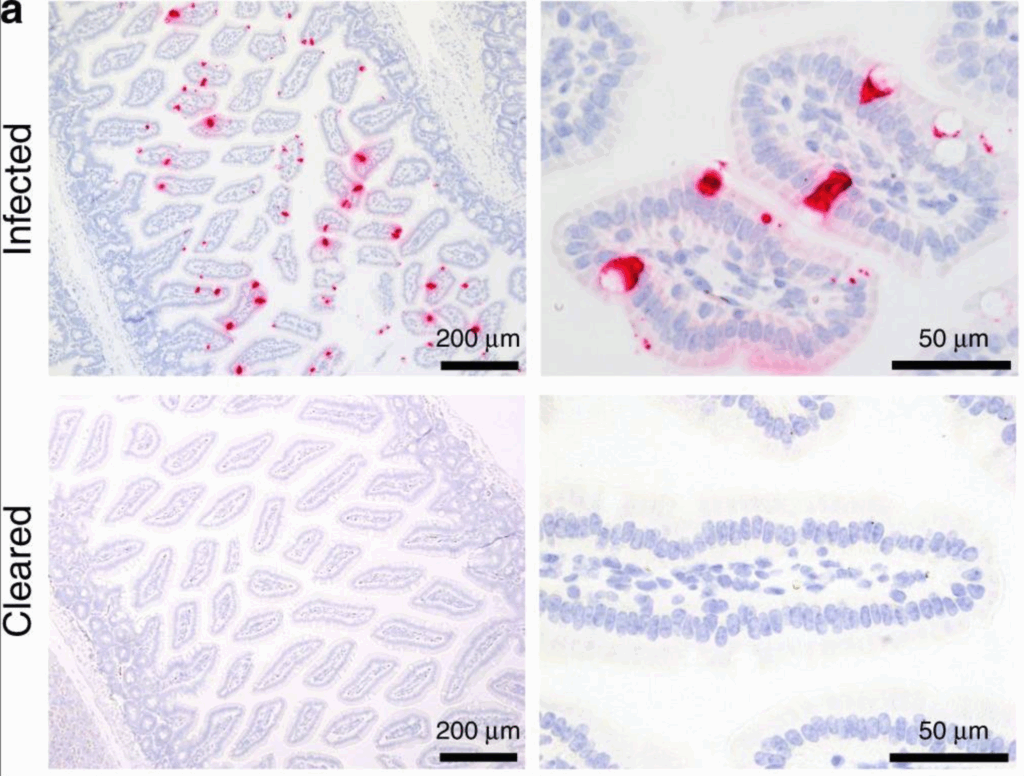Studies at the University of California, Santa Cruz, on how a virus that causes childhood diarrhea worldwide affects the body’s immune system will continue thanks to a $572,623 grant from the National Institutes of Health (NIH) to the lab of assistant professor Valerie Cortez in the Department of Molecular, Cell, & Developmental Biology.
The two-year, R21 grant will allow the lab to examine whether immune tolerance, which is often weakened by gastrointestinal diseases, is disrupted by the astrovirus. NIH R21 grants support innovative, high-reward research projects with the potential for significant breakthroughs. UC Santa Cruz alumnus Jacob Gulman, a research specialist in the Cortez Lab, generated most of the data for the grant application.
Astroviruses are incredibly understudied, according to Cortez, and little is known about the molecular mechanisms that underlie their disease. Her lab has shown that astrovirus targets mucus-secreting cells in the small intestine, known as goblet cells, that are essential for gut health. Natalie Pedicino, a Ph.D. candidate in the Cortez Lab, has built on this research and found that astrovirus seems to be targeting these cells and hijacking them in order to sneak out of the gut undetected and avoid having to kill the cells and alert the immune system.
“This would present an entirely novel form of viral release,” said Pedicino, who represented UC Santa Cruz in the 2024 UC-wide Grad Slam lightning-talk competition. “This work has broader implications for potential bioengineering of therapeutics to help individuals who have diseases due to dysregulated intestinal mucus secretion.”
The NIH also awarded a prestigious F31 fellowship in the amount of $97,662 to Pedicino to complete her thesis work on those molecular processes.
Overall, Cortez said this research will define an entirely new facet of astrovirus pathogenesis and launch new lines of investigation into how enteric viruses may contribute to the development of digestive disease.
“Both of the awards were significantly delayed, and we were very uncertain about whether we would receive either of them,” Cortez said. “Without the fellowship, Natalie’s graduation time would have been delayed and without the R21 funding, we would’ve had to stop work on the project due to funding constraints.”
